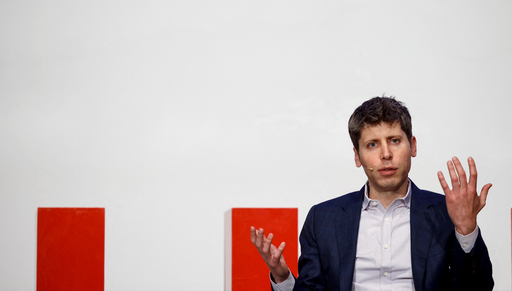When Lauren Bannon, a 40-year-old US resident and a mother of two, began struggling to bend her fingers, she suspected something was off.
In February 2024, doctors dismissed her symptoms, worsening stiffness in the mornings and evenings, and diagnosed her with rheumatoid arthritis. Though her multiple test results didn’t confirm it.
Months later, after intense stomach pain and rapid weight loss, Bannon realised she needed to look elsewhere for a second opinion. That’s when she turned to ChatGPT, the artificial intelligence chatbot developed by OpenAI.
Bannon, who runs a marketing company and lives between North Carolina and the US Virgin Islands, asked the tool what might mimic rheumatoid arthritis. It suggested Hashimoto’s disease, an autoimmune condition that affects the thyroid, and even told her which test to request. That answer changed her life.
“I needed to find out what was happening to me, I just felt so desperate. I just wasn’t getting the answers I needed,” Bannon said, as reported by the New York Post.
Despite scepticism from her doctor, she insisted on getting tested in September 2024. The result confirmed the AI’s suspicion. That test led to a thyroid ultrasound, which revealed two small lumps. In October, doctors confirmed they were cancerous.
“If I hadn’t looked on ChatGPT, I would’ve just taken the rheumatoid arthritis medication and the cancer would’ve spread from my neck to everywhere else,” Bannon said.
She claims that the insights from an AI chatbot led to her life-saving diagnosis. “It saved my life. I would’ve never discovered this without ChatGPT. All my tests were perfect.”
Though she didn’t present the typical fatigue linked to Hashimoto’s, Bannon believes AI helped uncover a condition that would have otherwise gone unnoticed.
She later underwent surgery to remove her thyroid and two lymph nodes. Now recovering and under continuous monitoring, Bannon hopes her story raises awareness about how AI tools, when used thoughtfully, can support patients in advocating for their health.
Still, she cautions others not to use AI as a substitute for medical care. “If it gives you something to look into, ask your doctors to test you,” she said. “It can’t do any harm. I feel lucky to be alive.”

Humankind thought it was slick when it figured out that speaking politely to artificial intelligence might earn them points when a robot apocalypse comes. But that costs a lot of money and gallons of water.
Use of AI in healthcare?
Experts agree that AI has a role in modern medicine, but only when used alongside, not in place of, qualified medical advice.
Dr. Harvey Castro, a board-certified emergency physician and national speaker on AI in medicine, believes stories like Bannon’s show the promise of technology, but he urges patients to tread carefully.
“AI is not a replacement for human medical expertise,” he told Fox News Digital.
“These tools can assist, alert and even comfort, but they can’t diagnose, examine or treat.”
“When used responsibly, AI can enhance healthcare outcomes, but when used in isolation, it can be dangerous,” he added.
AI is already reshaping the healthcare field. From transcribing notes to flagging abnormal scans, it’s streamlining workflows and sharpening diagnosis.
According to Dr Samir Kendale of Harvard Medical School, AI’s potential stretches across specialities, offering clinical support without replacing expertise.
But Kendale also points out a major limitation: most doctors haven’t been trained to use AI tools.
“AI wasn’t introduced in medical school until recently,” he said. That knowledge gap can lead to poor implementation or overreliance.
Dr Maha Farhat of Massachusetts General Hospital underlines that AI can reduce diagnostic uncertainty and support personalised treatment, but only if clinicians understand how to apply it effectively.















